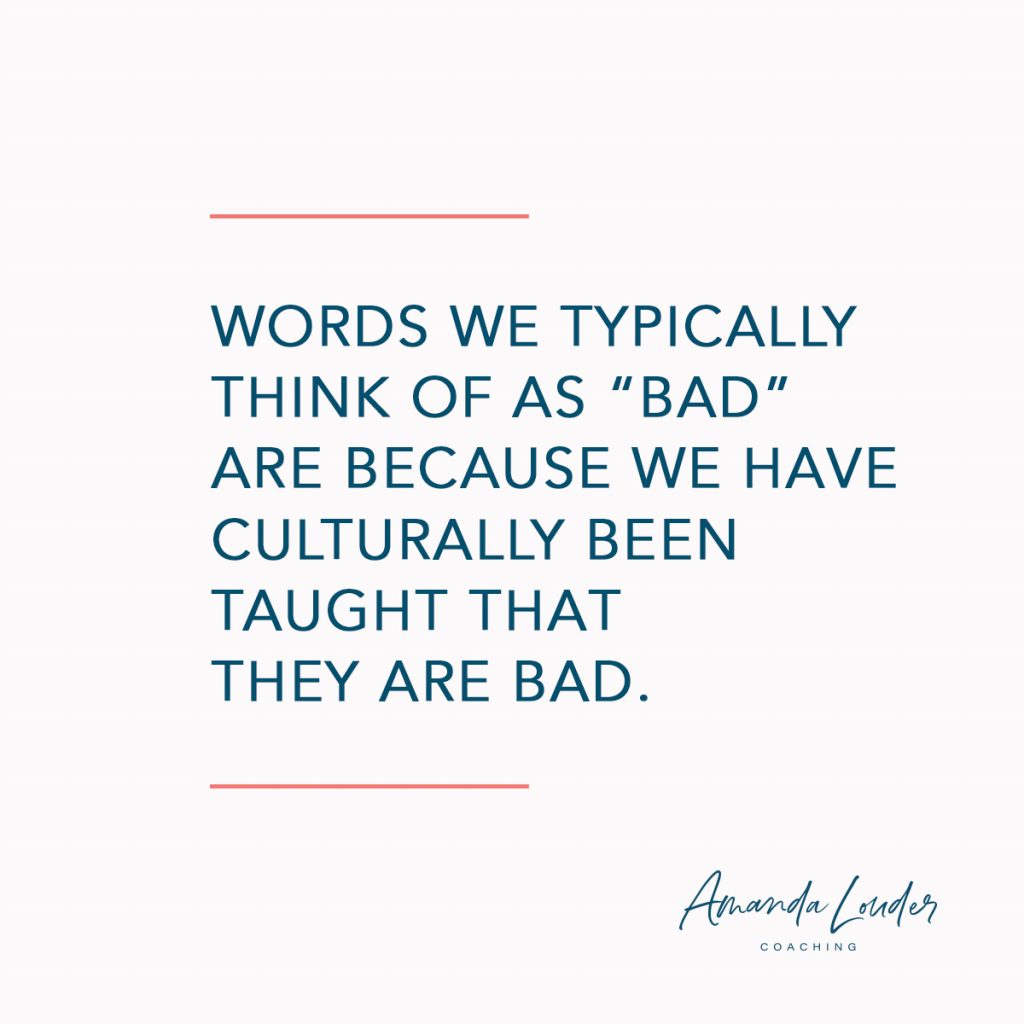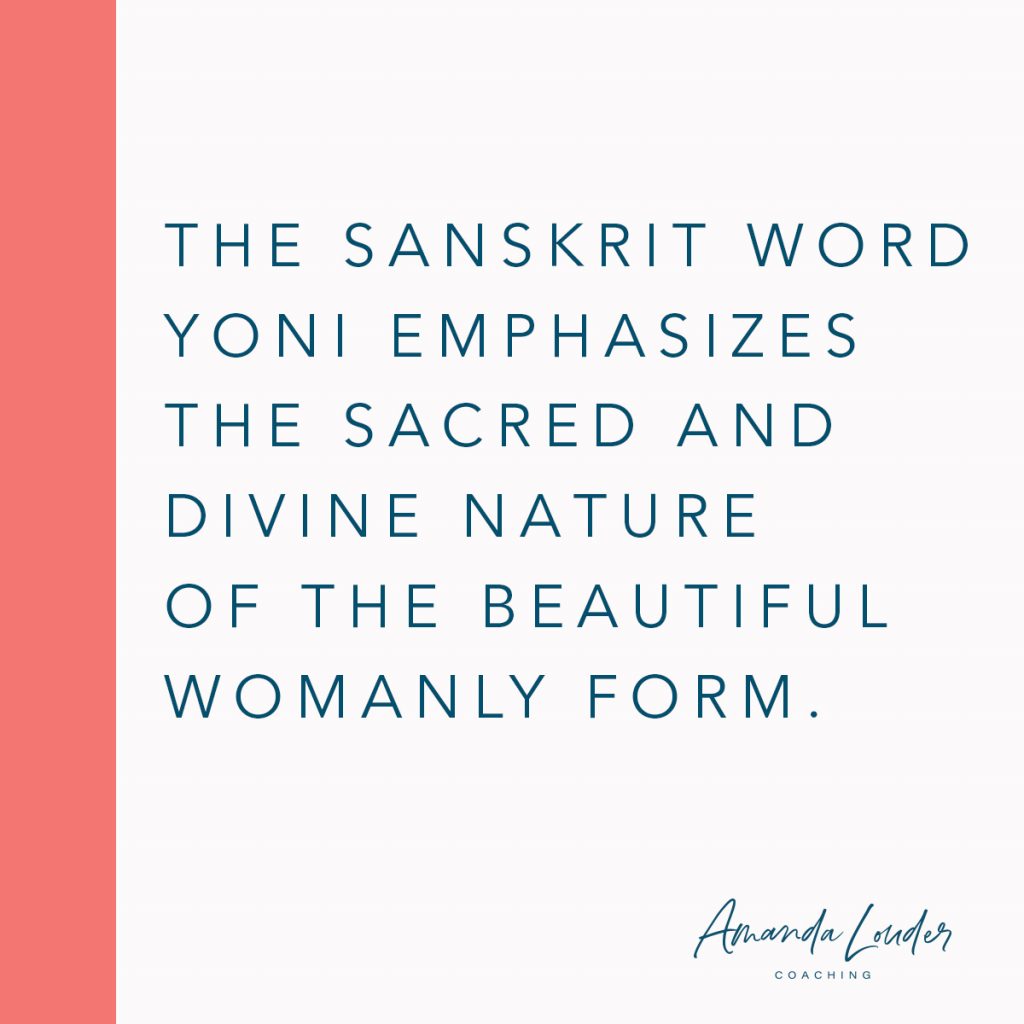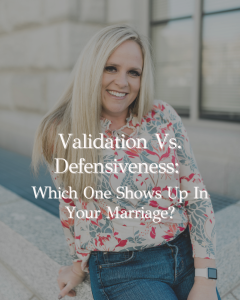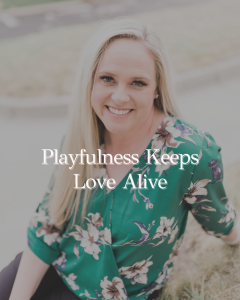
In this episode, let’s talk about words. What are words? They are just letters and syllables that we have been taught are good or bad. But why are they good or bad? It all comes down to our culture. The English language lacks the subtlety that other languages have when it comes to love and our bodies. Maybe we need to take a look at that and change what we see as “dirty words.” Maybe it’s time to change some of those dirty words into sex positive works for us and our spouses.




Show Notes:
Follow Amanda on Facebook and Instagram.
Join Amanda’s Private Facebook Group.
References for this episode:
Women’s Anatomy of Arousal by Sheri Winston
Show Summary:
I’ve been wanting to do a podcast on the language of love and sex for quite a while. A friend of mine wrote a great paper on it, that he has graciously allowed for me to use as a basis for this podcast. There was also a great discussion about something similar in one of the Facebook groups I am part of that went right along with what I was writing for this episode, so I’m excited to dig into this with you.
Because this podcast isn’t rated explicit, I’m going to be careful about the words that I use here. Not because I am ashamed to use them or don’t use them myself in other scenarios. But I don’t say them here because of that rating.
What is a word? It is a series of letters and sounds strung together. We use them to convey our thoughts, our ideas, and our emotions. Words by themselves are not good or bad. They mean certain things to us because of the cultural programming we have around them. Good words can be ugly and foul when used in ugly ways. Words we typically think of that are “bad” are because we have culturally been taught that they are bad. We give words meaning by how we think about them. They have no power until we give them power. But, even when we mean certain things with words, the way we mean it is not always the way that it is received. Communication is imperfect because the meaning is always filtered through the lens of the listener’s experience.
In the book “Women’s Anatomy of Arousal” by Sheri Winston, she talks about how some of the difficulties we have talking about sexuality and eroticism comes from the lack of proper words to discuss these things in detail. The English language doesn’t have words for many things around eroticism and sexuality that other languages have.
For example, think about the word “love” and the many different contexts we use it: You can love your parents. You can love your best friend. You can love your dog. You can love your children. You can love an object. You can love your spouse.
All the different forms of love are driven by affection and attachment, yet they are all very distinct and different. The ancient Greeks seemed to understand this concept well, because they have seven different words that describe love in all it’s nuanced forms rather than just apply one word, like we do, to several contexts.
1 Agápe: Empathetic, Universal Love
Agápe is a love for others that’s inclusive of a love for God, nature, strangers, or the less fortunate. It’s generally a love toward humanity itself and is sometimes connected with altruism since it involves caring for and loving others without expecting anything in return. It’s often what we think of when we think about unconditional love. It’s something that we often strive for in relationships, but often it can’t come from anyone but Heavenly Father. Agápe definitely belongs in marriage, but really it comes from an infinite source. It’s all about loving other people because they are a child of God.
2 Storge: unconditional familial love
Storge is the protective, kinship-based love you likely experience with family members. You might love your sister, even if you don’t like her. You might love your dad, despite all the mistakes he made raising you. Storge is driven by familiarity and need and is sometimes thought of as a one-way love. Think about a mother loving her baby before the baby is aware enough to love her back.
3 Philautia: self-love
Philautia encompasses two concepts:
- It can be a healthy self-love where you take care of yourself and reinforce your own self-esteem. Think about self-care.
- It can also be about selfishness, where you are highly concerned with your own welfare above others. It can be very pleasure and fame-seeking and highly concerned with status. It can even be the foundation of narcissism.
4 Ludus: playful, flirtatious love
Ludus is infatuation, flirtation. It describes the situation of having a crush and acting on it. It’s rooted in having fun, whatever that means specifically to you. Ludus is definitely the love you’d experience with a fling, something more casual and exciting, but zero obligations. This can definitely be part of your romantic journey, more at the beginning stages before other forms of love come into play, but it can still be incorporated into a romantic relationship.
5 Philia: intimate authentic friendship
Philia is characterized by intimacy, knowing, and soul-to-soul bonds. It’s encouraging, kind, and authentic; the stuff from which great friendship is made, regardless of whether it’s with a platonic best friend or a romantic partner. This love is also based in goodwill, or wanting what’s best for the other person. Philia is a connection akin to that of soul mates; it’s one part destiny, another part choice.
6 Éros: romantic, passionate love
Eros is passion, lust, pleasure. It’s an appreciation for one’s physical being or beauty, and is driven by attraction and sexual longing. It describes desire and obsession and is most similar to what we think of as romantic, passionate love between life partners. At least in the earlier stages of courtship, when everything is crazy-hot and you can’t get enough of each other, that is.
But eros is also described as a life energy or the will to live. It is the desire to create life, and favors productivity and construction. Eros is ultimately the desire for wholeness with another. This is what makes a marriage different than any other relationship.
7 Pragma: committed, compassionate love
Pragma is love built on commitment, understanding and long-term best interests, like building a family. Over time, eros can turn into pragma as a couple grows to honor, respect, and cherish each other, accepting of differences and learning to compromise. It is everlasting love rooted in romantic feelings and companionship. It is what I have talked about as unconditional love.
In the Sanskrit language of old India, upon which many Yoga and Tantra terms are based, they have beautiful sacred words to describe sexual anatomy and sexual acts. For example, Yoni symbolizes the divine creative energy, we would call the Vulva. Yoni emphasizes the sacred and divine nature of the beautiful womanly form. This is consistent with LDS doctrine and beliefs in the sacredness of the female body and yet we have no English nor LDS specific word to describe the divine beauty of a woman’s body.
So, back to Sheri Winston, she said (quote) “Our culture hasn’t given us a good vocabulary for talking about sex. We have scientific terms (Vagina, Penis) or baby talk (Tushy, Wee-wee), Euphemisms (Down there, privates) and supercharged ‘so-called’ dirty words (Pussy, Cock, the F-word, etc).
“The last words and others like them evoke shock and offend many so they are banned from radio and TV. Yet they are just words, just a collection of syllables that we collectively agree have a certain meaning. They only mean what we make them mean, and they are only ‘dirty’ when we make them so.
“The simple truth is we need a more straightforward comfortable way to talk out sex than our current language provides. One way to do this is by taking the charge off words that currently titillate or offend… by treating them as if they have no charge” (close quote)
There are times when we need to use more clinical words, like when we are talking with a doctor or talking to our kids. But these words really lack passion and eroticism in the bedroom.
So, most of our English words related to sex and sexuality are either considered clinical OR “swear words” and insults. With our additional LDS framing, many of these words become even more hyper-charged and as a result we often find it exceedingly difficult to discuss or describe sexual specifics.
So let’s talk about the LDS framing of “swear words.” The commandment we have been given is not to take the Lord’s name in vain. Yet, we apply this commandment to a lot more than taking his name in vain. I hope that as you’ve listened to many episodes of this podcast, you’ve begun to question a lot of the cultural teachings you have learned in your lifetime. Swear words are church culture telling you what words are moral or immoral. It is not doctrine. You get to decide what words you want in your vocabulary and what words you don’t. And I know that for many of us (me included) thinking about “swear words” in this way is something completely new and different. Just because you may not choose to use these words in your everyday vocabulary, doesn’t mean that there is anything inherently wrong with them. But you can choose to use them if and when you deem appropriate, like in the bedroom.
I think that every word is appropriate when used within the context and purpose for which it was created. For example the F-word is a sexual word. It literally means a certain kind of way of having sex. Dr. David Schnarch says that there is no other word in our vernacular to describe this type of sexual encounter. Now, that doesn’t mean that you need to be comfortable with it or choose to use it. That is entirely up to you. But, it can be used, in the sexual realm, with your spouse, as a way to verbalize how you would like the sexual encounter to go. And, by using this word, that maybe you don’t use in your everyday language, it can be exciting and help you have that novelty in your sexual relationship that we all crave. If you remember Episode 119 – How ‘Auditory Arousal’ Can Heat Up Your Lovemaking: An Interview with Laura Brotherson, dirty talk is high up on the scale of heating things up. Using these dirty words sparingly can help them stay special and meaningful.
So, how do we introduce this (if you are so inclined) into our sexual relationship. Sheri Winston suggests that we choose to use specific words that we may currently consider “dirty words” and redefine them as sex positive words for ourselves and our spouse. This can enable us to convey messages of eroticism and desire that we may currently be uncomfortable with.
Slut for example does not have to be a negative word, nor does Pussy, Cock, or the F-word. We can redefine them to be sex positive in our own usage of them! We can redefine them to create more passion, pleasure, and intimacy in our marriage.
Now, it’s a good idea to discuss this with your spouse first, before you start throwing around words that may have the opposite effect on them at the moment. Even after discussion, you or your spouse may not be comfortable using these words. It’s important to honor your spouse’s wishes. But, if you are the one who feels uncomfortable, I want you to question why. What do you believe is good or bad about it? Why is it a bad word to you? Could it be good in certain contexts? Why or why not?
If you decide that you aren’t ok with it, open yourself up to the possibility that it could change in the future but be ok with where you are right now. In the meantime, you could find other words or phrases that you don’t use everyday that can take on some of the same meanings.
You could say, “I want you to ravish me” or “I want you to bang me” if that’s more comfortable for you and see if it works. Try it, or other ideas out, and see what you feel.
What I always come back to is “by their fruits ye shall know them.” If it brings goodness to your marriage and sexual relationship, then do it. If it doesn’t, then don’t. But be open to trying new things that you might have said “no” to in the past or felt inappropriate before. This is how we learn and grow and become the highest version of ourselves.



